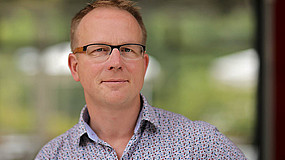Friendships are a special form of social relationship. In general, the importance of friendships for quality of life, social status and state of health has been extensively confirmed by socio-medical, psychological and sociological research (Hojjat et al. 2017; Schobin et al. 2016). Friendship can be explored by analyzing (a) the quantity and quality of friendship practices and / or (b) the underlying concept of friendship. The few studies on the WS so far indicate a comparatively low quality of life, problems with social cognition, little knowledge of the concept of friendship and difficulties in building and maintaining relationships with peers. (Davies et al. 1997; Elison et al. 2010; Fisher et al. 2017; Sullivan et al. 2003). So far it is unclear why adolescents and adults with WBS seem to “get stuck” in their understanding of friendship at child-like levels and which aspect of social cognition could be the reason for this. If this riddle could be solved, the WS could provide a key to a better understanding of friendship development.
The research project has the following objectives:
The project is funded by the SMWK (Saxon State Ministry for Science, Culture and Tourism) and is co-financed by tax funds on the basis of the budget decided by the members of the Saxon State Parliament with € 6,000.
